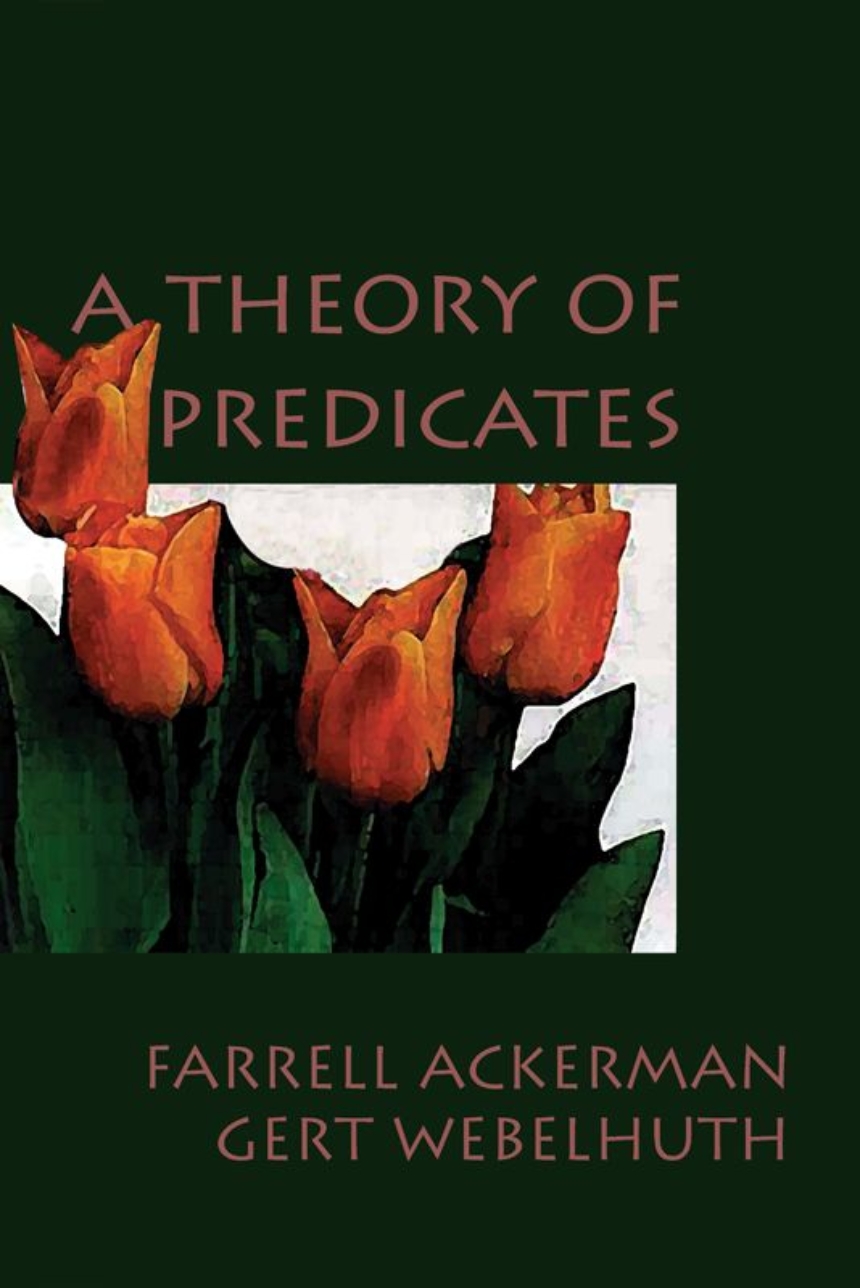Distributed for Center for the Study of Language and Information
A Theory of Predicates
When studying linguistics, it is commonplace to find that information packaged into a single word in one language is expressed by several independent words in another language. This observation raises an important question: how can linguistics research represent what is the same among languages while accounting for the obvious differences between them?
In this work, two linguists-Farrell Ackerman and Gert Webelhuth-from different theoretical paradigms develop a new general theory of natural language predicates. This theory is capable of addressing a broad range of issues concerning (complex) predicates, many of which remain unresolved in previous theoretical proposals. The book focuses on cross-linguistically recurring patterns of predicate formation. It also provides a detailed implementation of Ackerman and Webelhuth’s theory for German tense-aspect, passive, causative, and verb-particle predicates. In addition, a discussion of the extension of these representative analyses to the same predicate construction in other languages is presented. Beyond providing a formalism for the analysis of language-particular predicates, the authors demonstrate how the basic theoretical mechanism they develop can be employed to explain universal tendencies of predicate formation.
In this work, two linguists-Farrell Ackerman and Gert Webelhuth-from different theoretical paradigms develop a new general theory of natural language predicates. This theory is capable of addressing a broad range of issues concerning (complex) predicates, many of which remain unresolved in previous theoretical proposals. The book focuses on cross-linguistically recurring patterns of predicate formation. It also provides a detailed implementation of Ackerman and Webelhuth’s theory for German tense-aspect, passive, causative, and verb-particle predicates. In addition, a discussion of the extension of these representative analyses to the same predicate construction in other languages is presented. Beyond providing a formalism for the analysis of language-particular predicates, the authors demonstrate how the basic theoretical mechanism they develop can be employed to explain universal tendencies of predicate formation.
Read about this title on the CSLI website.
500 pages | 6 x 9 | © 1997
Language and Linguistics: Formal Logic and Computational Linguistics, General Language and Linguistics, Syntax and Semantics

